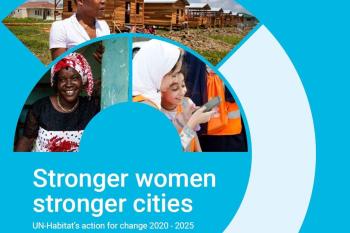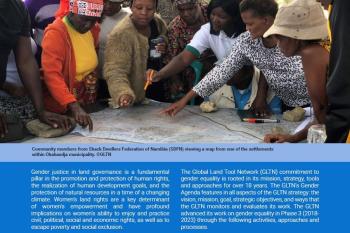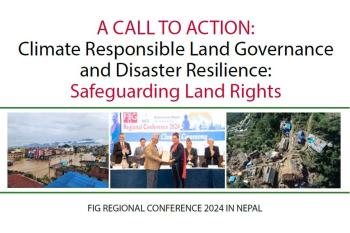
Read More
Stronger women stronger cities: UN-Habitat’s action for change 2020 – 2025
This publication presents a summary of UN-Habitat’s gender equality impact over the past five years, in line with the Beijing reporting cycle.

Land conflicts often have extensive negative effects on economic, social, spatial and ecological development. This is especially true in developing countries and countries in transition, where land market institutions are weak, opportunities for economic gain by illegal action are widespread and many poor people lack access to land. Land conflicts can have disastrous effects on individuals as well as on groups and even entire nations. Many conflicts that are perceived to be clashes between different cultures are actually conflicts over land and related natural resources.

This publication presents a summary of UN-Habitat’s gender equality impact over the past five years, in line with the Beijing reporting cycle.

GLTN’s institutional commitment to gender equality and secure land rights for women and girls has been at the core of its work since inception in 2006.

This FIG Nepal CALL TO ACTION on Climate Responsible Land Governance and Disaster Resilience underscores the imperative for land professionals to act in a climate responsive way.